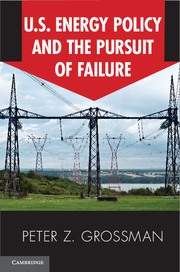Preface
Published online by Cambridge University Press: 05 March 2013
Summary
On August 25, 1980, Congressman Jim Wright (D-TX) rose on the floor of the U.S. House of Representatives to address his colleagues about an energy bill, the Magnetic Fusion Energy Engineering Act of 1980 (MFEE). “[T]his decision and what flows from it,” Wright declared, “may well rank alongside the great discoveries of history, the discovery of fire and the discovery of electric power.” The legislation had dramatic intent. It would solve all of America's long-term energy dilemmas by demonstrating the commercial feasibility of electric power generation by nuclear fusion, a controlled version of a hydrogen bomb. The bill made it “the declared policy of the United States…to establish a national goal of demonstrating the engineering feasibility of magnetic fusion by the early 1990s…[and] operation of a magnetic fusion demonstration [electric power] plant at the turn of the twenty-first century.” The bill passed the House with only six dissenting votes; later it would pass the Senate unanimously. The principal author of the bill, Representative Mike McCormack (D-WA), claimed it was “the most important piece of energy legislation passed by this or any other country.”
The hubris of the bill was breathtaking. The passage of a piece of legislation portrayed as the catalyst of the next “discovery of fire”? Sustainable net energy from nuclear fusion had never been achieved in the laboratory, much less on the scale of a power plant. There were major scientific and engineering hurdles to be overcome. Essentially, Congress was legislating that there would be solutions by dint of the bill's passage. Wright likened the effort to the Manhattan Project that led to the atomic bomb; McCormack compared it with the Apollo space program. Actually, it was comparable to neither. Neither of those programs sought to create a technology that would be commercially successful. This program was expected to create a new technology for an estimated cost of $20 billion that would ultimately triumph in the marketplace. By 2050, McCormack predicted, all electric power would be generated by nuclear fusion. The fuel, a heavy isotope of hydrogen found in seawater, was sufficient to provide energy “literally…[for] billions of years.” In other words, it would resolve all U.S. energy problems essentially forever.
- Type
- Chapter
- Information
- US Energy Policy and the Pursuit of Failure , pp. ix - xivPublisher: Cambridge University PressPrint publication year: 2013



